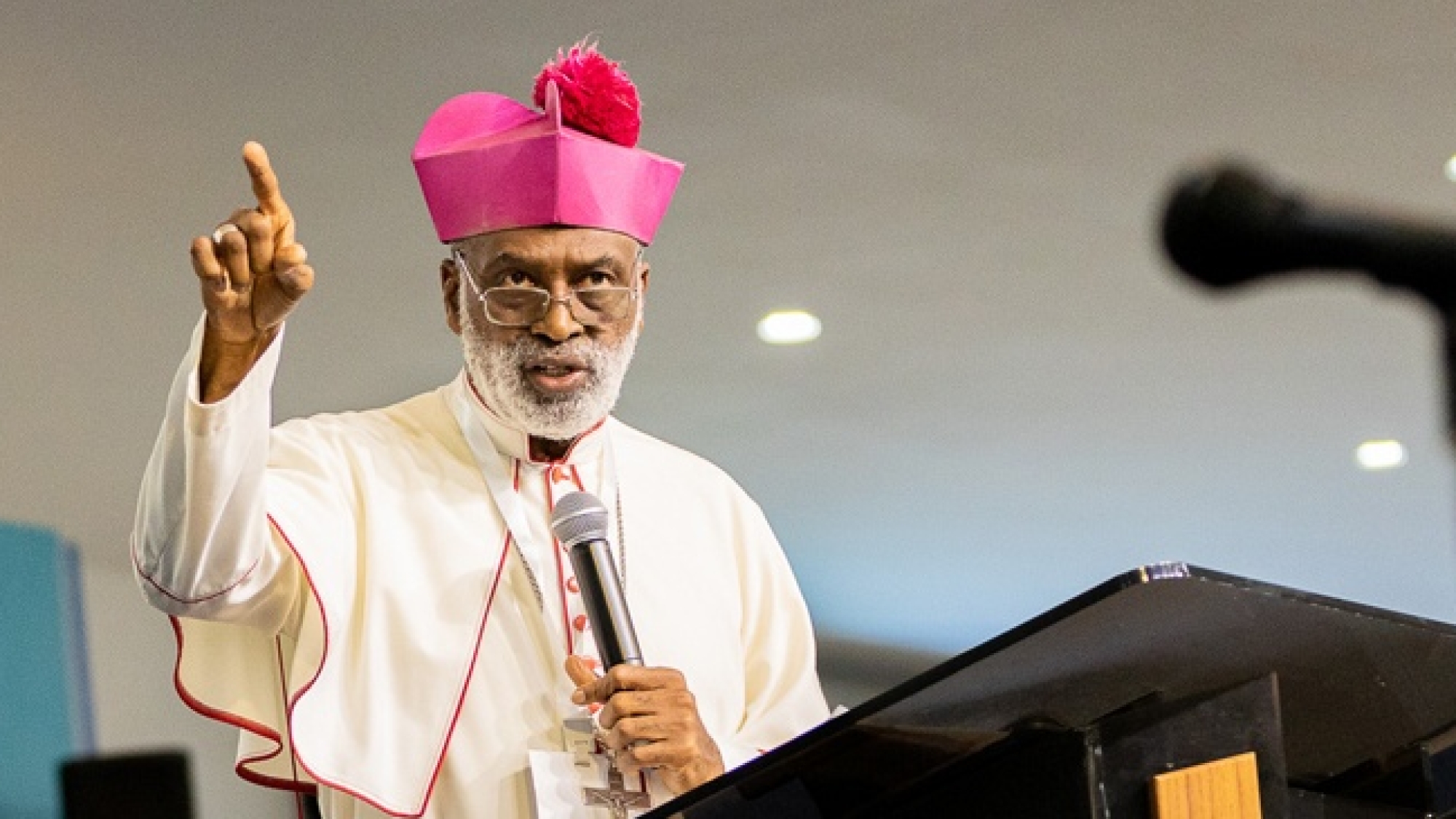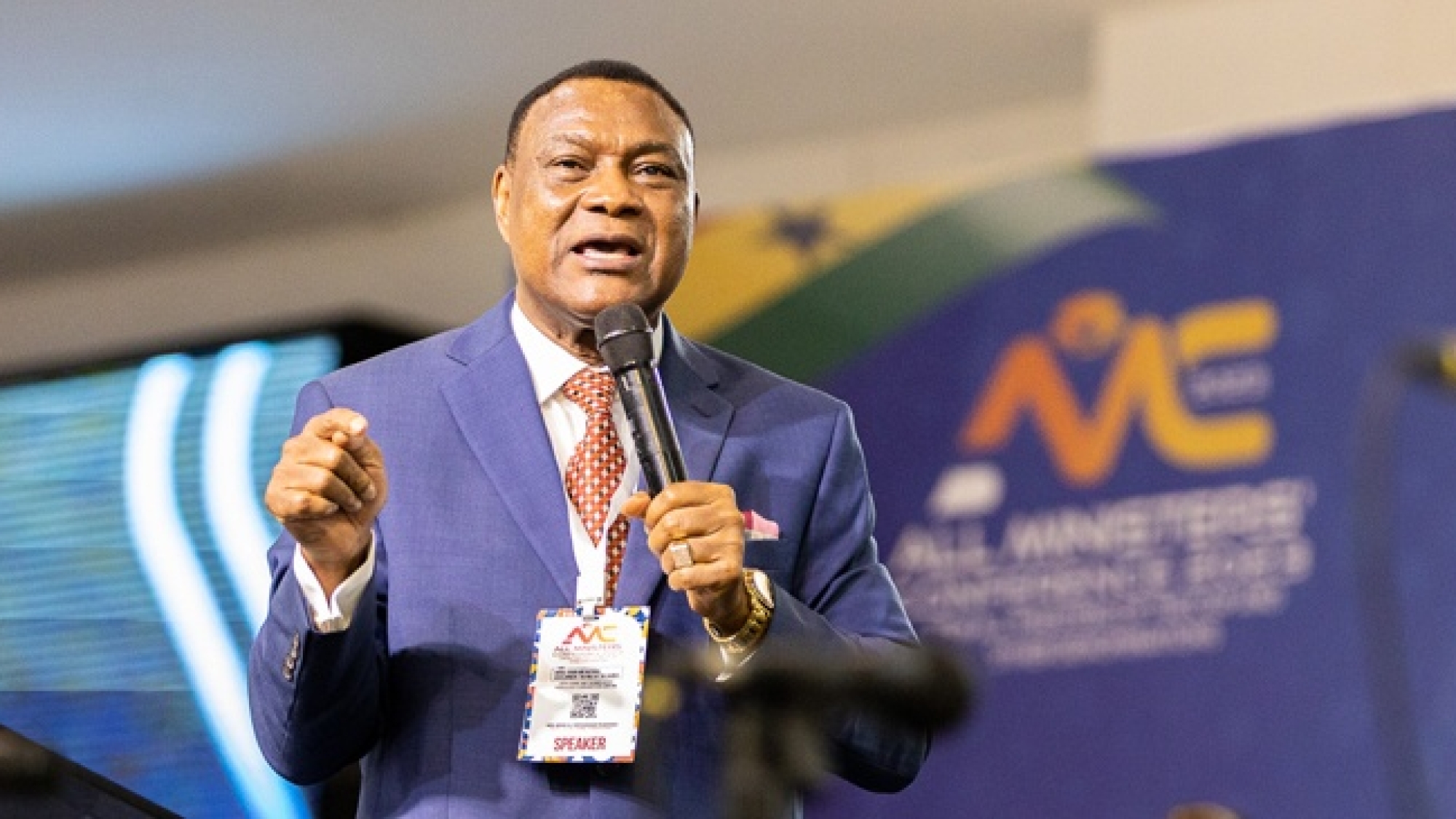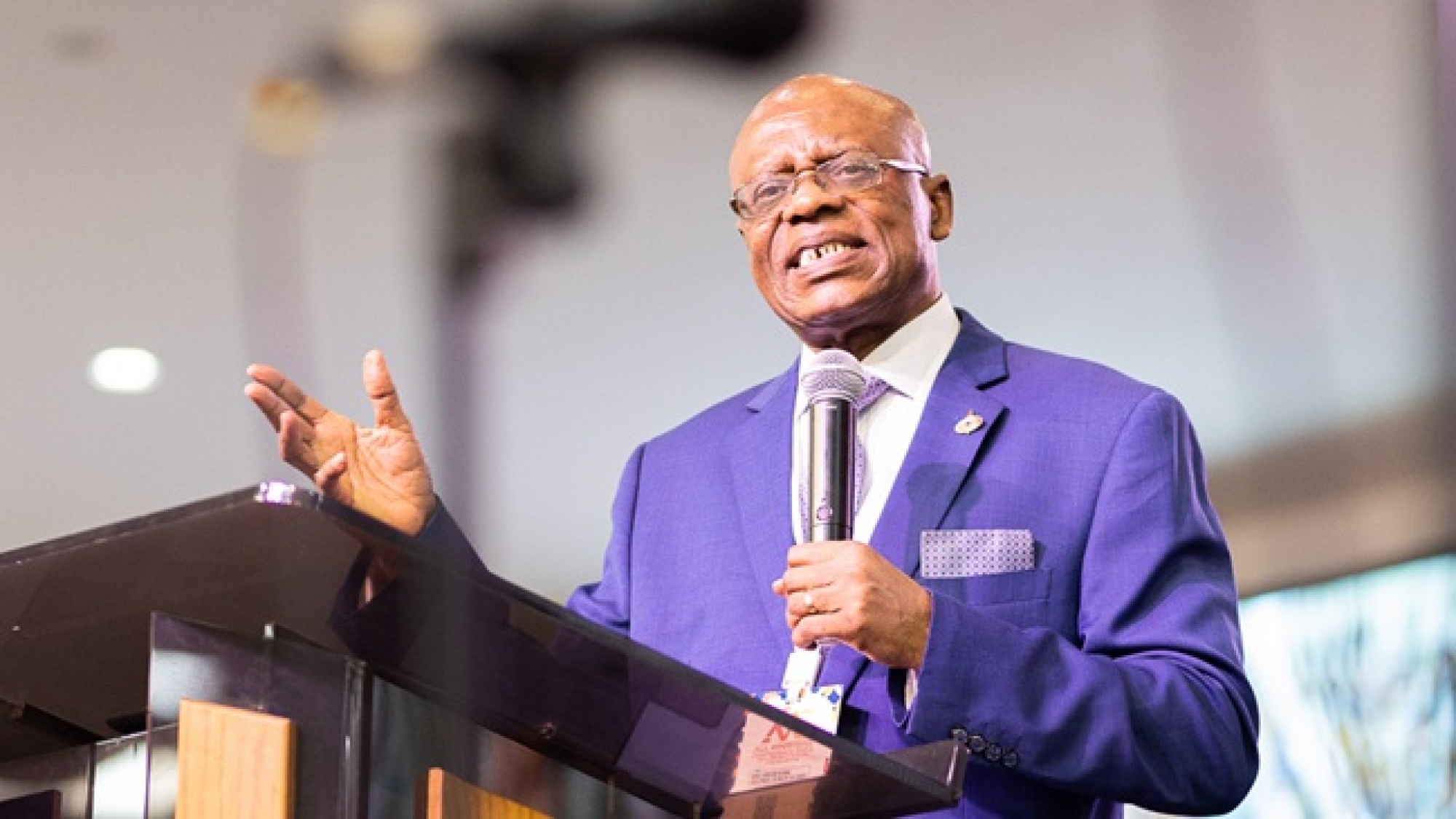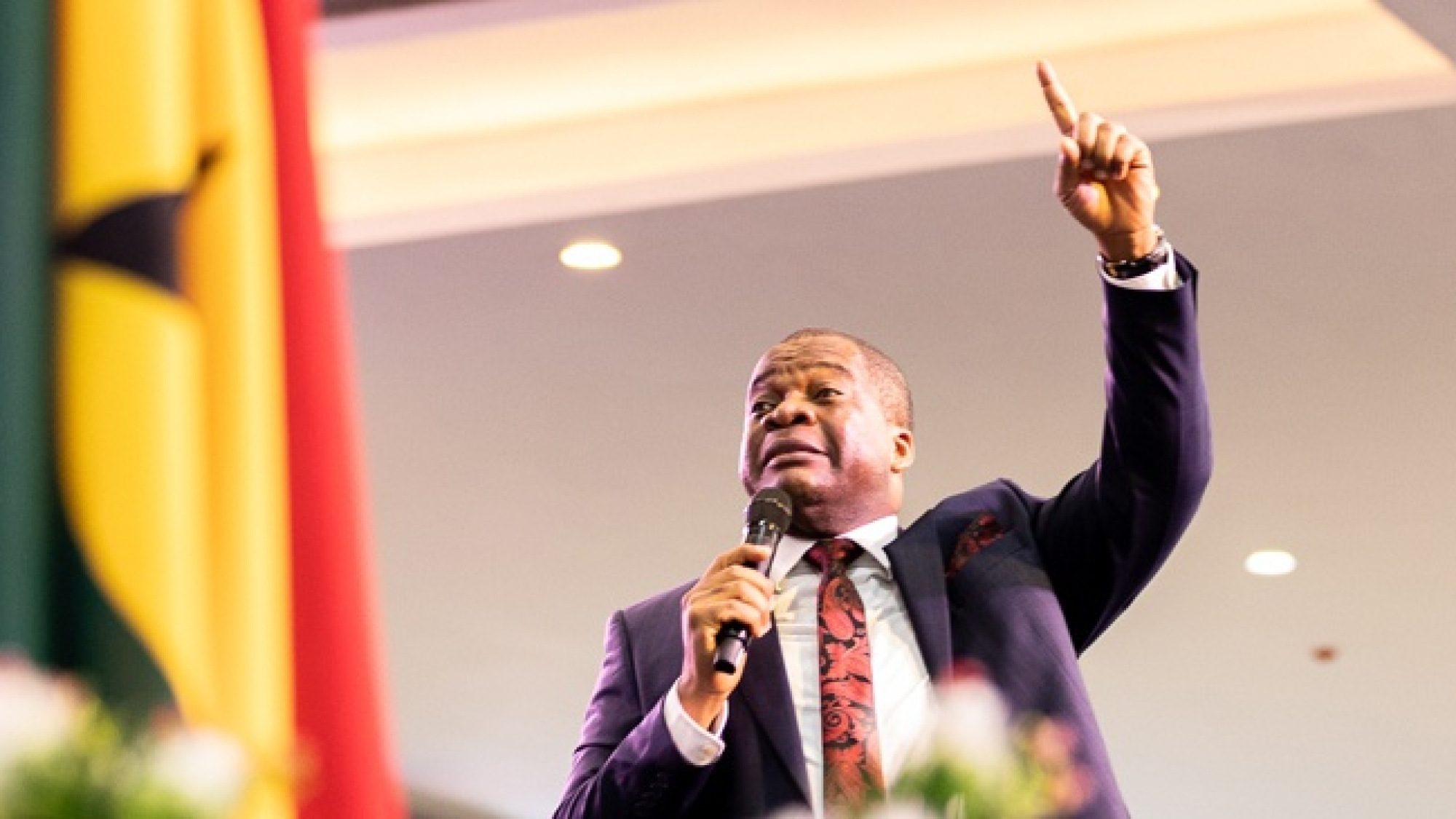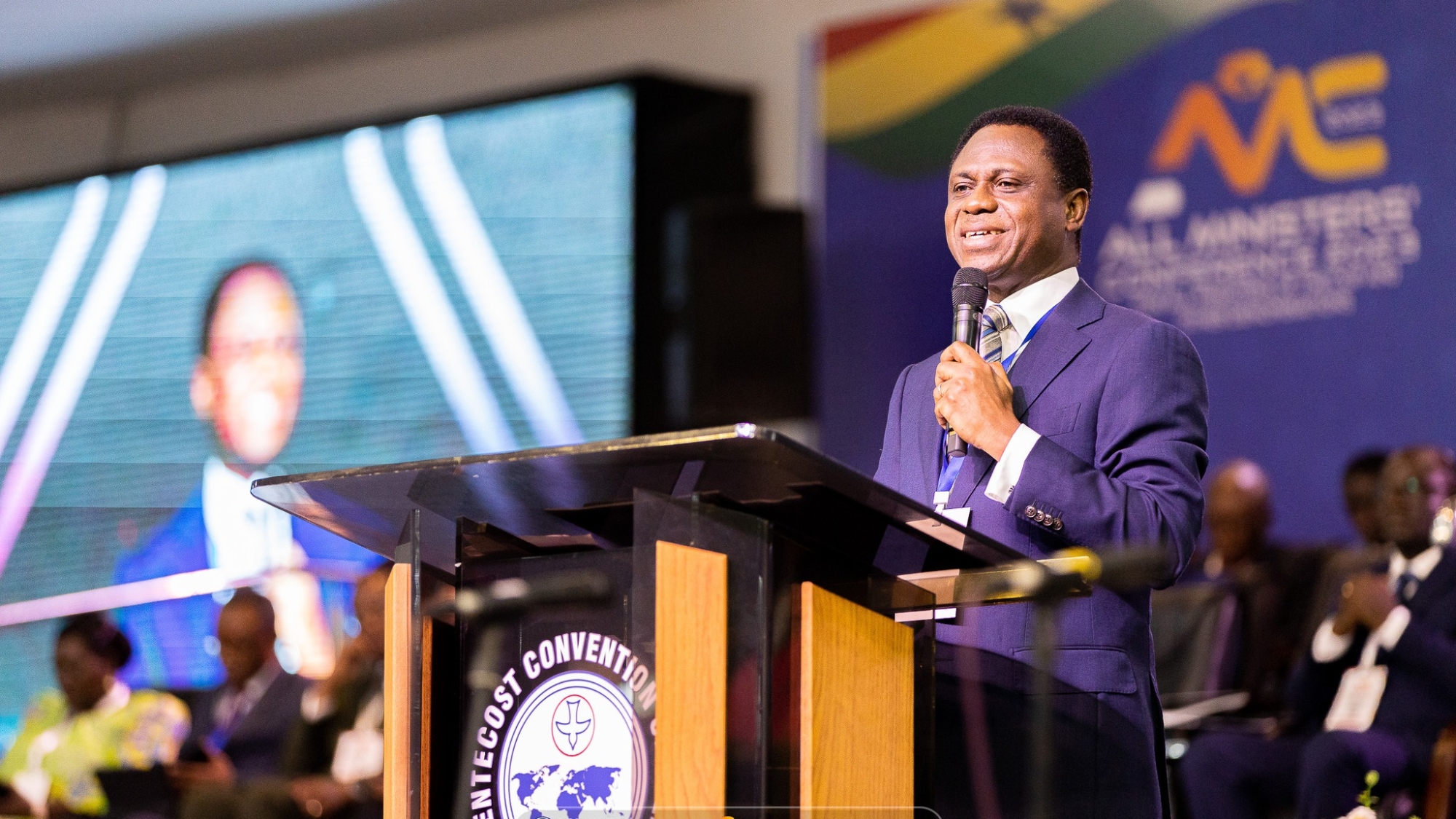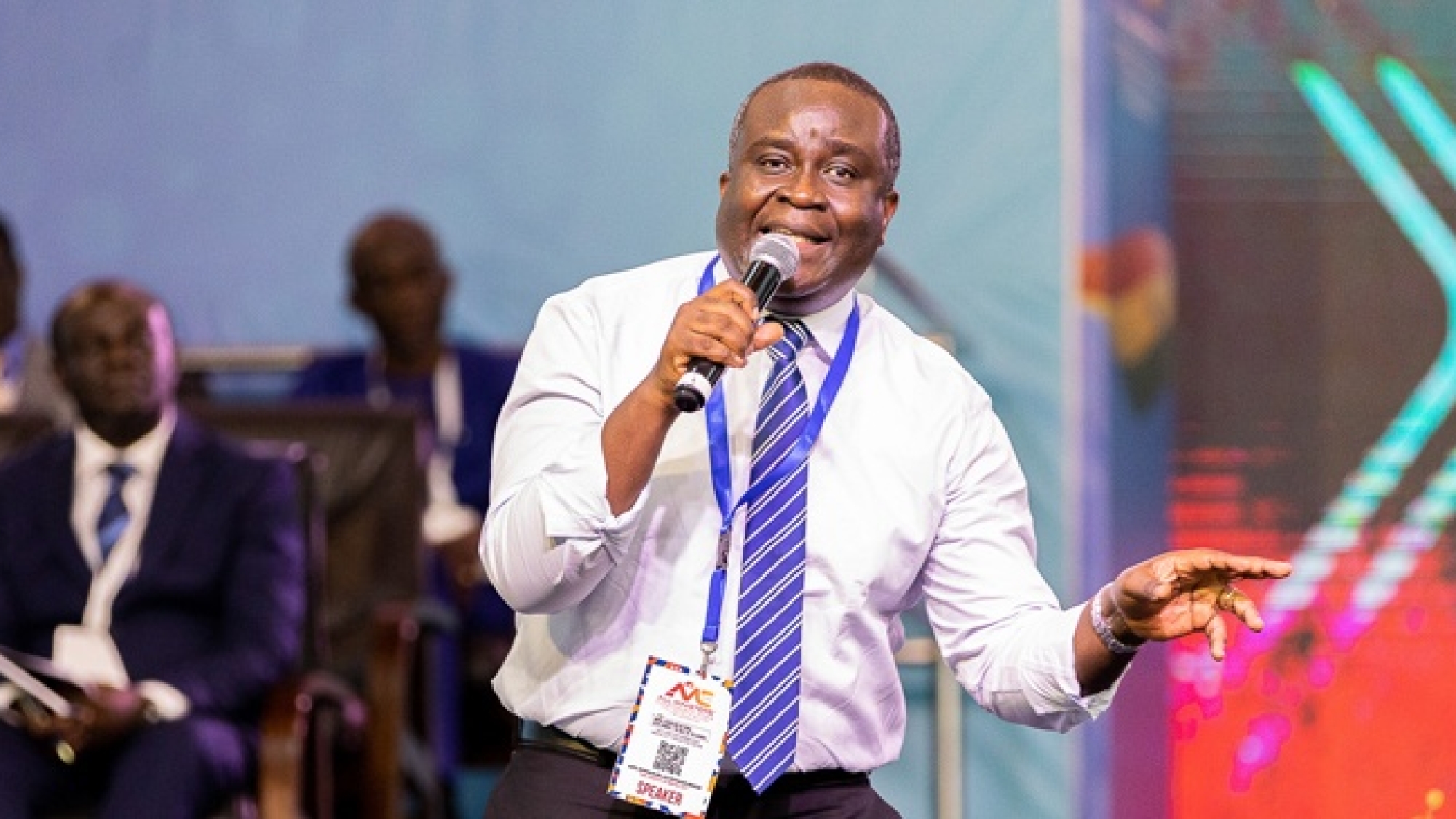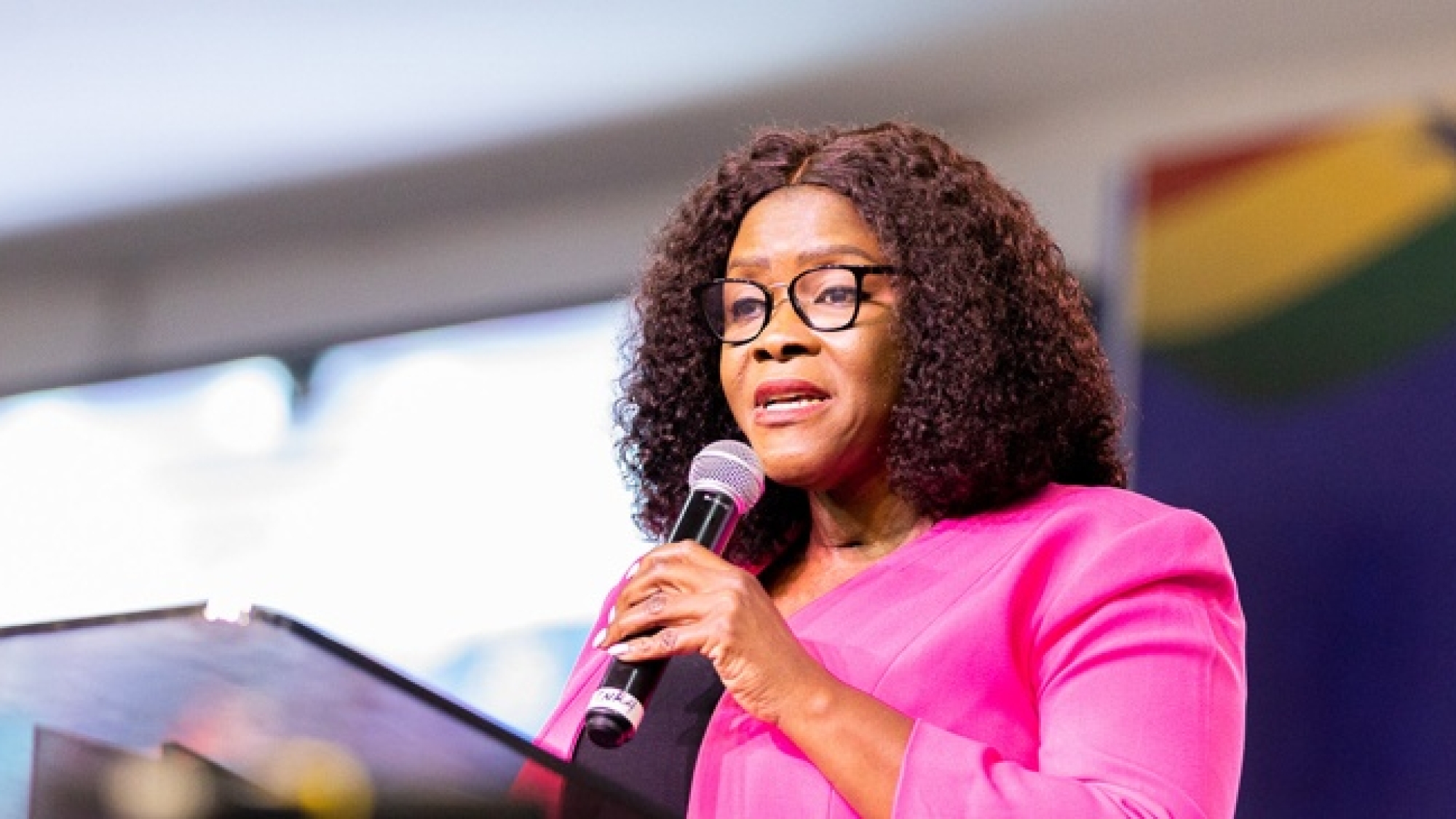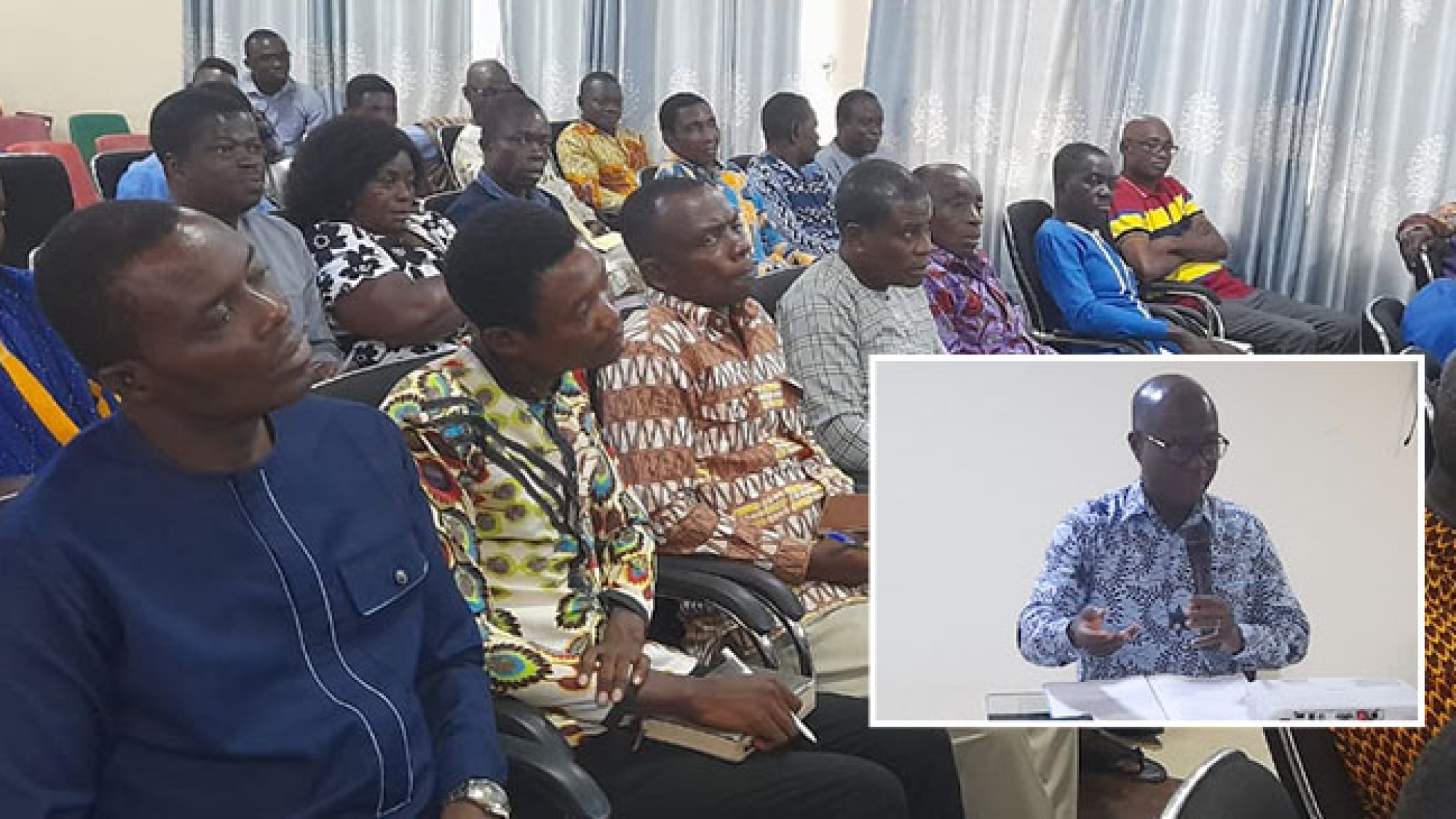Please find below the full text of the Opening Address delivered by the Chairman of THE CHURCH OF PENTECOST and Convener of the ongoing All-Ministers Conference (#AMC2023), Apostle Eric Nyamekye, during the opening session of the interdenominational conference.
The address contains all you need to know about the focus and objectives of this all-important conference.
 Reading Time: 5 minutes
Reading Time: 5 minutes
********************************
Praise the Lord!
I am delighted that we are gathered here once again as a unified force not bound by denominational barriers to pursue the purpose of the Church in our dear nation, Ghana.
On behalf of the Executive Council of The Church of Pentecost and the entire planning committee members of this conference, which cuts across several other denominations, I welcome you all to the second edition of the All Ministers #interdenominational conference. Last year was a blessing, and I am hopeful this year’s edition will equally be a blessing.
Dearly beloved, as I indicated last year, I hold the view that no one denomination is the exclusive or particular channel of God’s grace. The saints, I believe, are equally distributed among all denominations and that the degree to which God uses a fellow is determined not by the denomination in which he is located but by the depth of his surrender to God, regardless of where he is.
To achieve the #transformation of our dear nation and fulfil the Great Commission within our context, we must work together across denominational lines. By joining forces, we can become a powerful voice that shapes the growth and development of our nation through the gospel of Christ. This is the essence of the “All Ministers Conference”.
Brothers and sisters, this year’s conference, in particular, is a direct follow-up of the National Development Conference, which was hosted by The Church of Pentecost here at PCC a couple of weeks ago under the theme, “Moral Vision and National Development”.
The conference brought together Ghana’s two former presidents, the sitting Vice President, the Speaker of Parliament, the Chief Justice, parliamentarians, leaders of political parties and various heads of institutions.
The Conference called for an urgent need for a clear moral vision that will serve as the bedrock for our development as a nation.
The question we are confronted with as a Church is this: as the salt of the earth and light of the world, what role can the Church play in all this? Dearly beloved, this is what this year’s All Ministers Conference seeks to address under the theme: “Moral Vision and National Development – the Role of the Church”.
The relevance of the church to the common man is the transformation it brings to society.
For a nation that claims to have 71.3 % of its population as Christians, we need to rethink our influence on the nation’s development in our generation, especially the moral development.
Among this, 71.3% of Ghanaians claiming to be Christians are cultural Christians, nominal Christians and actual practising Christians.
By cultural Christians, I am referring to those who claim to be Christians solely due to their forebears being Christians but have never been active members of any church.
Between 2010 and 2015, the Ghana Evangelism Committee conducted a “National Church Survey” in five regions.
However, due to funding constraints, the survey did not cover all the five regions. According to the survey, only 19.76% of the population in the Ashanti region attended church.
In the Upper West region, the survey recorded only 12.05% of the region’s population attending church. The Upper East, Northern and Bono Ahafo regions recorded 12.0%, 8.21% and 21.23% respectively.
Admittedly, it is possible that these statistics might have improved over the period, but one thing is clear: as ministers of the Gospel, we need to work really hard to bring all these cultural and nominal Christians into the fold of the Church and effectively disciple them so that our huge numbers can have a meaningful impact on the nation.
Brothers and sisters, as we work hard in discipling our members, we must, however, keep in mind that persons are not isolated individuals, but are persons embedded in community with its complex and sometimes corrupt socioeconomic and political structures.
We cannot save the soul of an individual and be unconcerned about the society they live in – the very structures and systems that inform their everyday life. Both the soul and society must be evangelised to make righteous living easy in the society.
The theme for this conference, “Moral Vision and National Development – the Role of the Church”, is a call to consciously raise all who claim to be members of our churches to be channels through whom the grace of God will flow in blessing to society.
It is a call to help our members appreciate their role as the salt of the earth and the light of the world.
It is a call to re-orient ourselves that the Church holds the key to the transformation of this nation.
It is a call to refocus the church on its core mandate of raising Christlike Christians who will transform society with righteousness. For righteousness, the Bible says, exalts a nation, but sin is a reproach to any people (Prov. 14:34).
Brothers and sisters, I am very confident that as the Church of God, when we collectively keep our minds to our mandate, we can bring about the needed transformation to the nation. I am happy to note that we can draw some encouragement from history.
Max Weber was a German sociologist, economist, and politician. In 1904, Max Weber wrote a series of essays about the evolution of capitalism in Northern and Central Europe. These essays later became the widely read book “The Protestant Ethic and the Spirit of Capitalism.”
According to Weber, the industrial revolution that gave birth to the new economy in Europe and eventually to our modern civilisation was a result of the teachings of the European Protestants.
Weber believed that the influence of the Protestant ethic on large numbers of people to work in the secular world, enterprises, trade, savings, and investments gave birth to the new world economy, largely known as capitalism. It is upon that economy that our modern world stands.
Prior to the Protestants’ teaching, the dilemma of the European economy was the fact that when landowners employed labourers, they could not make these labourers give their best. The only incentive widely known and used at that time was an increase in wages, thinking that when there was an increase in wages for labourers, they would view their work as more valuable and, thus, work longer and harder.
However, in the real sense, the labourers often spent less time working and not hard enough. They would rather drink and leisure. But the teaching of the Protestants changed all that.
The basic teachings of the Protestants were all surrounding values, ethics, and morals. They focused on building a better world out of what they had. Their teachings, among others, stressed on the following:
 That righteousness must be at the basis of the nation, government, and society in general.
That righteousness must be at the basis of the nation, government, and society in general.
 That ministry was not only meant for the clergy; every believer is a minister. Howbeit, they minister everywhere they find themselves on a daily basis: at work, at home and everywhere.
That ministry was not only meant for the clergy; every believer is a minister. Howbeit, they minister everywhere they find themselves on a daily basis: at work, at home and everywhere.
 That secular work is as sacred as the clergy’s. Hence, you do everything as unto the Lord, and whatsoever your hands find to do, you do to the very best.
That secular work is as sacred as the clergy’s. Hence, you do everything as unto the Lord, and whatsoever your hands find to do, you do to the very best.
 They also taught their people to choose to live for the long term, even eternity. This perspective on time motivated them to be far-sighted, sacrificing the short-term for the long term. They live with the next generation in mind. They were never interested in amassing wealth at the expense of the nation.
They also taught their people to choose to live for the long term, even eternity. This perspective on time motivated them to be far-sighted, sacrificing the short-term for the long term. They live with the next generation in mind. They were never interested in amassing wealth at the expense of the nation.
These values were later transferred to the United States of America, Canada, Australia, New Zealand and other countries and continents where the descendants of these European Protestants were scattered in the 16th/17th centuries.
Everywhere the Protestants and their descendants went, they took with them these same teachings, and they got the same results – a developed economy and an advanced and civilised society – a generally more prosperous nation.
If we do what the #Protestants did, we will have the results they had – the transformation of our society.
We cannot afford to only put up huge church buildings, raise gigantic billboards, litter churches across the nations, etc., without our salt and light being felt in our generation. This ought to change, brothers and sisters; this ought to change.
How can we complain about corruption when we are the salt of the earth?
It is for such reasons that we are gathered here once again to rethink our influence on our nation. It may not all happen in one day, but we need to begin from somewhere.
We need to ask ourselves, what are we not doing right? As we hear from the various speakers, let each and every one of us reflect – what am I not doing right as a church worker?
Let us make an intentional effort to translate our religiosity to spirituality and from spirituality to morality, and let us release our members into society to transform it with the values and principles of the Kingdom of God.
If the Protestants in the 16/17 century could do it, we can also do it in our time.
It is my prayer that in this conference, we shall have a deeper and better understanding of our role in the nation’s development.
I pray that after this conference, righteousness will flow from our churches to the streets and the marketplace.
On this note, I once again welcome you to the second edition of the All Ministers Conference. May the Lord of the Church, even our Lord Jesus Christ, be with us and give us success.





